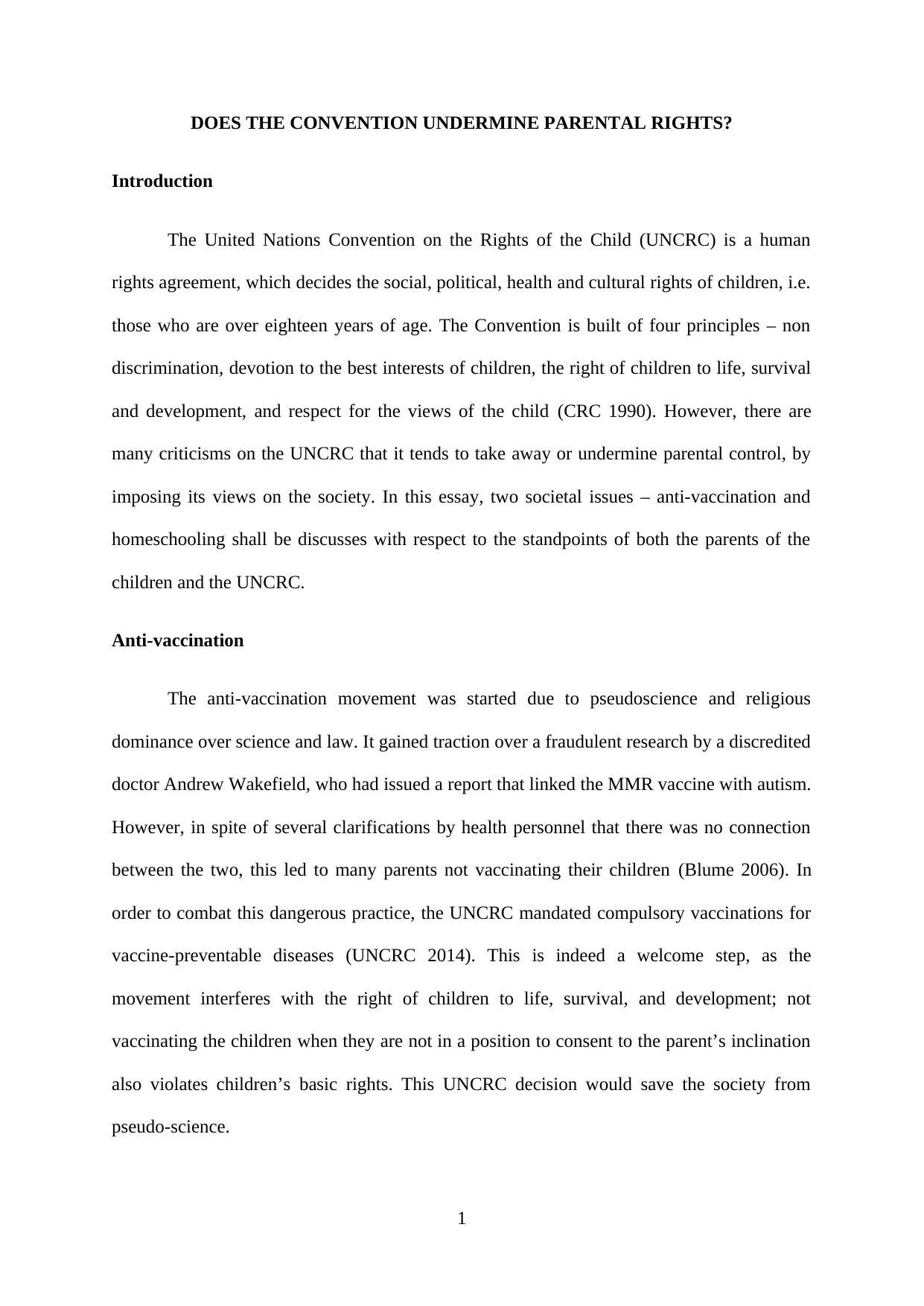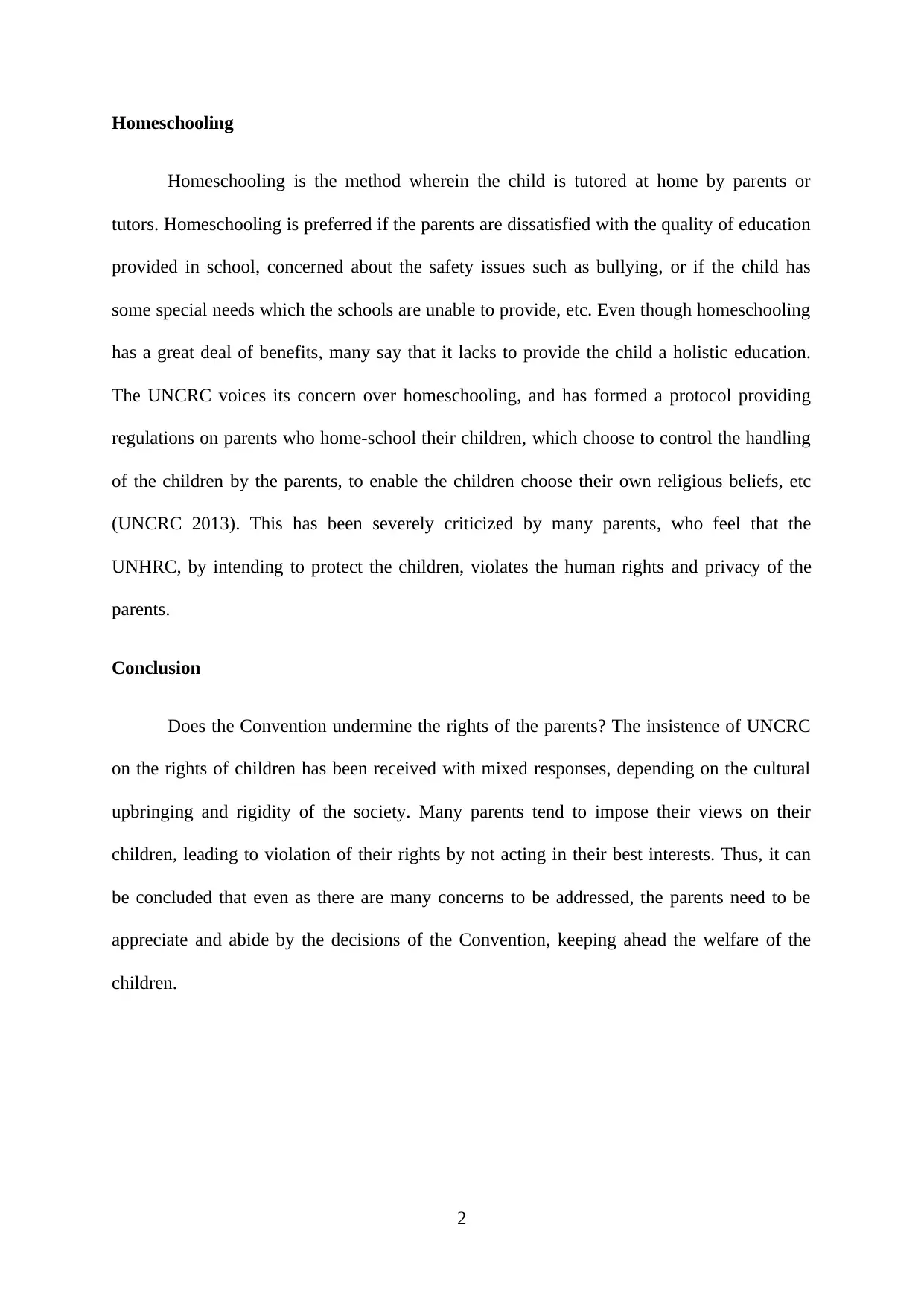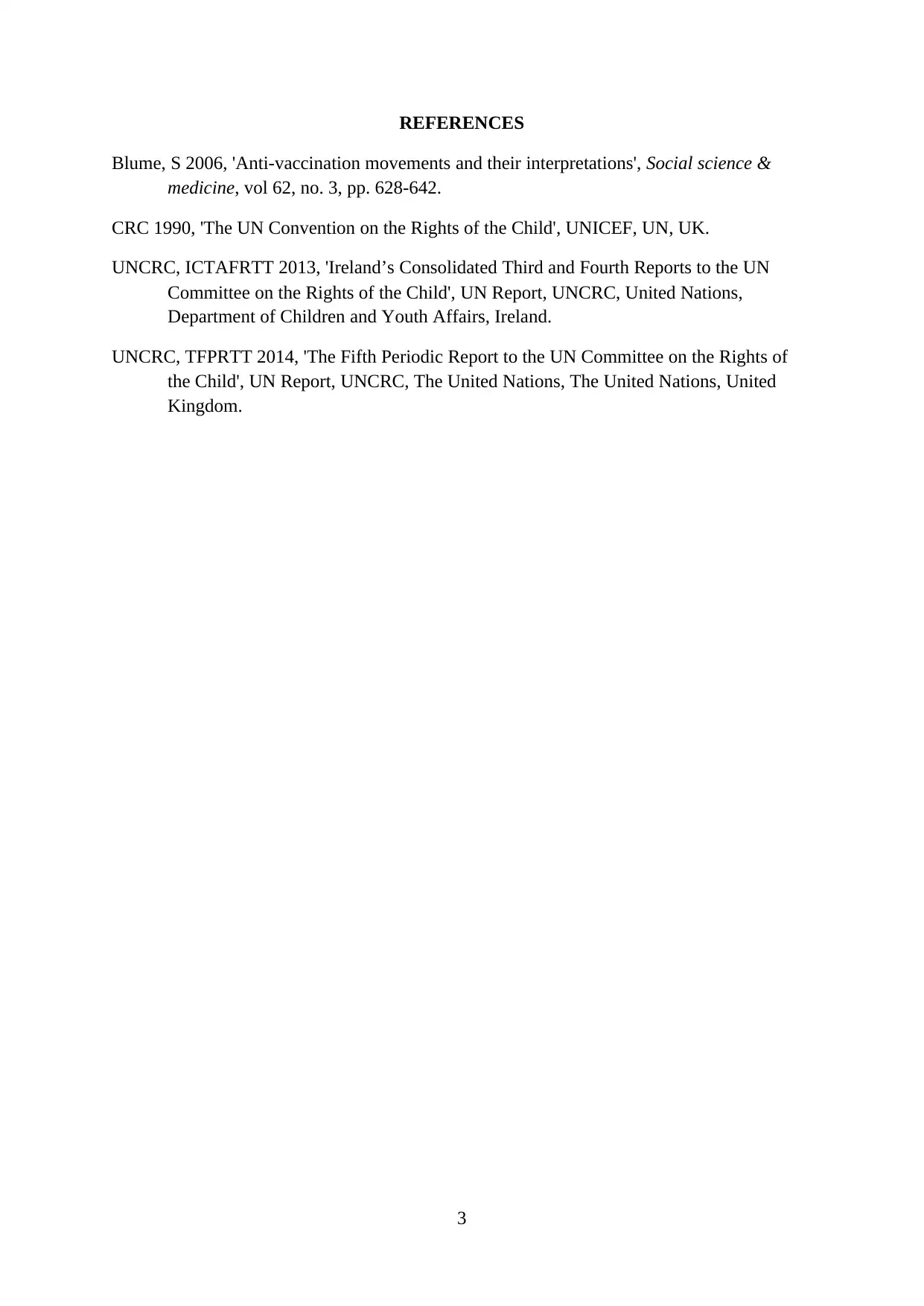Does the UN Convention on the Rights of the Child Undermine Parents?
VerifiedAdded on 2023/06/10
|3
|713
|77
Essay
AI Summary
This essay explores the United Nations Convention on the Rights of the Child (UNCRC) and its perceived impact on parental rights, focusing on the issues of anti-vaccination and homeschooling. The essay highlights the UNCRC's four core principles and addresses criticisms that the convention undermines parental control by imposing its views on society. Regarding anti-vaccination, the essay supports the UNCRC's mandate for compulsory vaccinations, arguing it protects children's rights to life, survival, and development against pseudoscience. In the context of homeschooling, the essay acknowledges parental concerns about UNCRC regulations, which some view as infringing on parental rights and privacy. The conclusion suggests that while concerns exist, parents should prioritize children's welfare and appreciate the convention's decisions. The essay references several sources to support its arguments and provide context to the discussion. Desklib provides access to similar essays and study resources for students.
1 out of 3








![[object Object]](/_next/static/media/star-bottom.7253800d.svg)